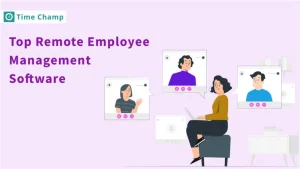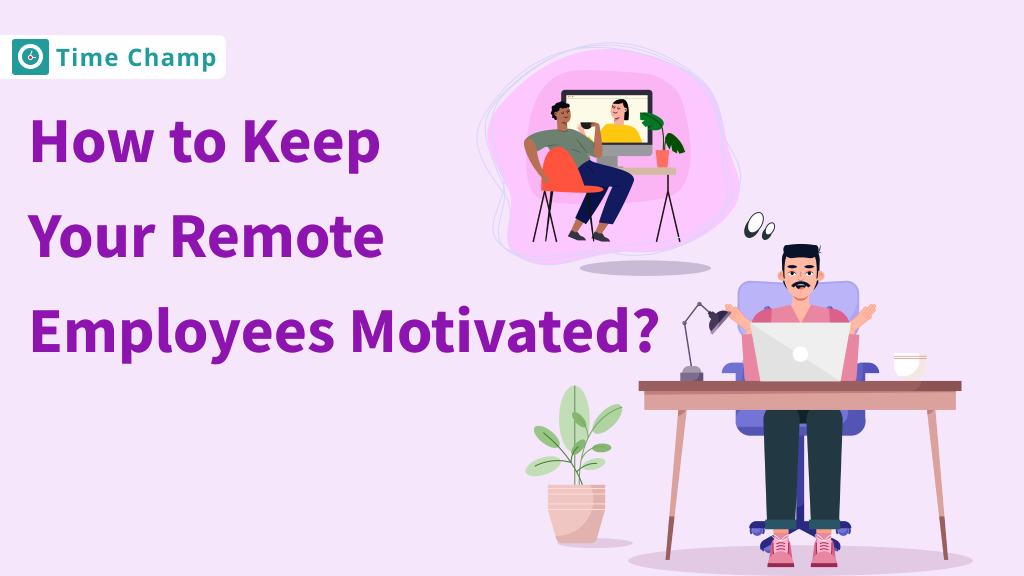As the modern workplace continues to evolve, new trends and behaviors emerge among employees. One such trend that is emerging is “coffee badging.” This is a practice where employees clock in at the office, just to stay long enough to grab a coffee or attend a brief meeting, and then leave to work remotely, which is raising questions about employee productivity, organizational culture, and trust.
After enforcing a policy for more than a year that requires employees to come to the office for at least three days a week, Amazon is now thinking of how to set a minimum number of hours in a day for this policy to be fulfilled, according to the screenshots of from the internal communication app Slack.
What is Coffee Badging?
Coffee badging is a term used to describe a tactic where employees physically show up at their office to badge in (scanning their ID cards) to record their presence (only to leave shortly after). The idea is to create the appearance of compliance with company attendance policies while actually working remotely for most of the day.
Why are Workers Coffee Badging?
After covid-19 pandemic many companies mandated RTO (return-to-office) which many workers find restrictive and unnecessary.
According to a survey by Owl Labs 58% of workers have coffee badged in the past and 48% are willing to quit their jobs if they get RTO imposed on them. Many workers prefer the flexibility and freedom of working remotely and do not want to waste time and money on frequent office visits. Remote employees also stated that they feel more productive and comfortable working from home where they can avoid distraction, interruptions and stress.
Who is Coffee Badging?
The same report from Owl Labs stated that coffee badging is observed among 63% of millennial hybrid workers, compared to 54% of Generation X, 43% of Generation Z, and 38% of Baby Boomers. Men might feel more comfortable doing coffee badges, while women might face more pressure or scrutiny to follow office rules. Millennials may be more attracted to the flexibility and comfort of Remote work than older generations who might have different work ethics and habits.
How Does Coffee Badging Affect Organizations?
Coffee badging is problematic for both the employees and the employers, it shows that there is a gap between what the workers want and what the employers are willing to offer. This practice shows that there is no trust and poor communication between the two parties. This can have a detrimental impact on individual and organizational outcomes such as decreased engagement, collaboration, innovation, and loyalty.
How to Prevent Coffee Badging?
Coffee badging can be prevented by embracing flexibility, fostering open communication, and prioritizing outcomes over physical presence. Employers should recognize that there are advantages and disadvantages of working from home, and provide employees with more options and autonomy regarding their workplace and work hours. There should be clear and consistent communication, and the employees should be asked for their input on RTO decisions. Employers should shift their attention from the quantity of work done to the quality of work done by the employees and not the time spent at work.
The coffee badge is an excellent example of how the nature of work has changed and how both employees and employers have to adjust to the new reality and opportunities of the hybrid and remote working models. This adaptation can lead to a more balanced, productive, and satisfying work environment for everyone.
How Time Champ Can Help Maintain a Productive Remote Workforce
Maintaining a productive remote workforce can be tricky because it requires balancing oversight with trust, ensuring productivity without micromanaging, and using tools that provide accurate data without infringing on privacy.
Time Champ will do just the needed by providing employers real-time insights into employee activities and their productivity.
Employers can schedule shifts according to the time zones of their remote employees and monitor their attendance which ensures that the employees are working efficiently. It balances oversight with trust by offering transparency and data-driven insights. This helps to keep the employees engaged and productive when working from home.
Want to Manage Your Remote Teams Better?
Learn how to tackle remote team management challenges with our expert tips
Take Me ThereHow Time Champ Can Help Employers Address Coffee Badging
Time Champ is out there helping businesses overcome coffee badging with its comprehensive features and effective monitoring capabilities ensuring employees are present, productive and engaged in their work.
The features Time Champ provides for their customers:
Time Champ provides employers with the best features to tackle coffee badging such as geofencing and GPS tracking that ensure employees clock in and out only within specific areas and give employers an idea of where their employees are and how long they have been away from the required location.
Time Champ has all the features that a company needs such as real-time monitoring and activity tracking to guarantee productivity and proper clock-in. In case of any irregularities or inactivity, the system sends an alert to the employer for proper management.
Time Champ also provides insightful reports to help employers analyze better and provides insights into employee absenteeism.
Conclusion
In conclusion, coffee badging reveals the changes in organizational culture as workers enter the office for a few hours before going back to work from home. This practice underlines the fact that organizations have to shift their attention to flexibility and performance instead of punctuality. Embracing these changes can help create a more balanced and productive work environment that aligns with modern workforce needs.







